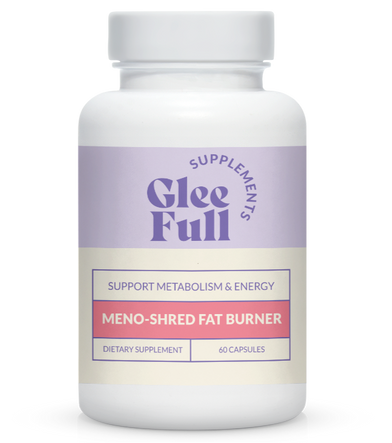Your Cart





Heart disease remains the leading cause of death globally, with an estimated 17.9 million deaths recorded in 2019 alone, according to the World Health Organization. This figure is projected to continue increasing, and by 2030, the number of deaths due to heart disease is expected to reach 23.6 million. This makes it essential to prioritize heart health and take steps to prevent heart disease.
Heart health is crucial because the heart is the center of the cardiovascular system, which is responsible for transporting oxygen and nutrients to every part of the body. The heart is a muscle that beats continuously, pumping blood through the arteries and veins to deliver oxygen and nutrients to cells throughout the body. It also helps to remove waste and carbon dioxide from the body.
Heart disease is not limited to any specific gender or age group, but it is a more significant problem for women. Women are more likely to die from heart disease than from any other cause, including cancer. Heart disease is also responsible for more deaths in women than in men. Women may face unique challenges when it comes to heart health. For example, women may have different symptoms of heart disease than men, and they may be more likely to develop heart disease after menopause. Additionally, some risk factors for heart disease, such as gestational diabetes, preeclampsia, and pregnancy-induced hypertension, only affect women.
Get regular check-ups: Regular check-ups with your doctor can help identify any potential heart disease risk factors early on. Your doctor can check your blood pressure, cholesterol levels, and blood sugar levels. Based on these results, they can recommend lifestyle changes or medication if necessary. Regular check-ups are especially important for women over 40 who may be at higher risk of heart disease.
Maintain a healthy weight: Obesity is a significant risk factor for heart disease, so maintaining a healthy weight is crucial. Being overweight or obese can increase the risk of high blood pressure, high cholesterol, and diabetes, all of which can contribute to heart disease. To maintain a healthy weight, aim for a balanced diet that is rich in fruits, vegetables, whole grains, lean protein, and healthy fats. It's also important to engage in regular physical activity to burn calories and maintain muscle mass.
Increase COQ10 nutrient in the body. CoQ10, or Coenzyme Q10, is a naturally occurring enzyme that is found in every cell in the body. It plays a critical role in the production of energy within cells and is particularly important for organs that have high energy demands, such as the heart. CoQ10 also acts as an antioxidant, helping to protect cells from damage caused by harmful free radicals.
Research has shown that CoQ10 supplementation can support cardiovascular health. For example, studies have found that CoQ10 can help reduce blood pressure, improve cholesterol levels, and support overall heart function. Additionally, some research suggests that CoQ10 may have anti-inflammatory effects, which can be beneficial for heart health.
However, not all CoQ10 supplements are created equal. The absorption and bioavailability of CoQ10 can vary significantly depending on the form and quality of the supplement. Some CoQ10 supplements are made with synthetic forms of the enzyme, which are not as well absorbed as natural forms. Additionally, the absorption of CoQ10 can be hindered by factors such as age, diet, and certain medications.
Quit smoking: Smoking is a significant risk factor for heart disease, so quitting smoking can significantly reduce the risk of heart disease. Smoking damages the lining of blood vessels, increases the risk of blood clots, and reduces the amount of oxygen that reaches the heart. Even secondhand smoke can increase the risk of heart disease. Quitting smoking can be challenging, but there are many resources available to help, such as nicotine replacement therapy, counseling, and support groups.
Exercise regularly: Regular exercise helps maintain a healthy weight, reduces stress, and improves heart health. Aim for at least 30 minutes of moderate-intensity exercise every day, such as brisk walking, cycling, swimming, or dancing. Regular exercise can lower blood pressure, reduce inflammation, and improve cholesterol levels, all of which can contribute to heart disease. Exercise can also help manage stress, which is another risk factor for heart disease.
Follow a healthy diet: A healthy diet that is low in saturated and trans fats, sodium, high in COQ10 and added sugars can significantly reduce the risk of heart disease. Aim to eat a diet rich in fruits, vegetables, whole grains, lean protein, and healthy fats. Avoid processed foods, fried foods, and foods high in salt and sugar. Eating a healthy diet can help manage weight, lower cholesterol levels, and reduce the risk of high blood pressure and diabetes.
Manage stress: Chronic stress can increase the risk of heart disease, so finding healthy ways to manage stress is crucial. Stress can cause inflammation, raise blood pressure, and contribute to unhealthy habits such as overeating or smoking. Healthy ways to manage stress include exercise, meditation, deep breathing, or spending time with loved ones. It's also important to identify sources of stress and work on addressing them, such as through counseling or therapy.
Limit alcohol intake: Excessive alcohol consumption can increase the risk of heart disease, so it's important to limit alcohol intake to no more than one drink per day for women. Drinking too much alcohol can raise blood pressure, contribute to unhealthy weight gain, and increase the risk of heart arrhythmias. If you do choose to drink, do so in moderation and be mindful of how alcohol affects your body.
Take medication as prescribed: If you have been diagnosed with high blood pressure, high cholesterol, or other conditions that increase the risk of heart disease, it's essential to take medication as prescribed by your doctor. Medications such as statins or blood pressure medications can significantly reduce the risk of heart disease and prevent complications. It's important to work with your doctor to find the right medication and dosage for your specific needs.

One of the key things that one can do is increase the consumption of COQ10. The form of CoQ10 used in supplements can also impact absorption. For example, the most common form of CoQ10 used in supplements is ubiquinone, which is the oxidized form of the enzyme. However, some research suggests that the reduced form of CoQ10, known as ubiquinol, may be better absorbed and more effective at supporting cardiovascular health.
Furthermore, the addition of certain herbs or ingredients to CoQ10 supplements can enhance absorption and bioavailability. For example, hawthorn berry extract, which is an ingredient in Eternal Heart, has been shown to support cardiovascular health and enhance the absorption of CoQ10. Hawthorn berry extract has been used traditionally in herbal medicine to support heart health and improve blood flow.
In Eternal Heart, we use a special form of CoQ10 called KanekaQ10, which is a natural, high-quality form of the enzyme that is well-absorbed by the body. We also include hawthorn berry extract, as well as magnesium and other supportive ingredients, to create a supplement that is specifically designed to support cardiovascular health.
CoQ10 is a critical enzyme that plays an essential role in heart health. However, not all CoQ10 supplements are created equal, and the quality and form of the supplement can impact its absorption and effectiveness. By choosing a high-quality CoQ10 supplement, such as Eternal Heart, that includes supportive herbs and ingredients, individuals can enhance their cardiovascular health and support overall well-being.
In conclusion, taking care of our heart health is crucial for our overall health and well-being. Heart disease is a major health problem that affects millions of people worldwide, and it is responsible for many deaths each year. However, there are many things we can do to maintain good heart health, such as eating a healthy diet, getting regular exercise, quitting smoking, managing stress, and getting regular check-ups with a healthcare provider. Additionally, supplements like Eternal Heart can support heart health by providing key nutrients that support healthy blood pressure, cholesterol levels, and overall heart function.
By following the steps above and incorporating supplements like Eternal Heart into their daily routine, women over 40 can significantly reduce their risk of heart disease and maintain good heart health throughout their lives. Remember, taking care of our heart health is a lifelong process, and small changes can make a big difference. So, prioritize your heart health and start taking steps today to ensure a healthy heart for years to come.